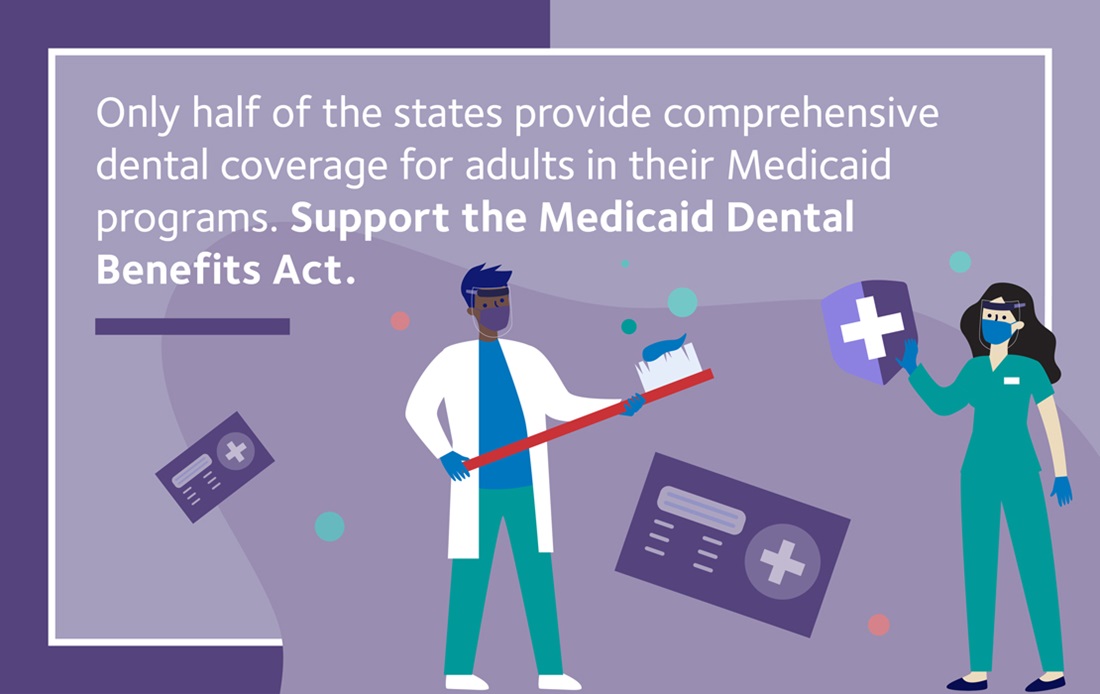A long-standing lack of focus on adult oral health care from federal and state governments has created a patchwork of dental coverage by state Medicaid programs.
This lack of dental coverage in some states is particularly problematic because the millions of adults who rely on Medicaid are the least likely to access dental care and face the biggest cost barriers to dental care. They are also more likely to experience dental pain, report poor mouth health, and find their lives to be less satisfying due to their poor oral health.
Ensuring that states provide comprehensive dental services to adult Medicaid beneficiaries is a sound economic investment. The ADA’s Health Policy Institute estimated the cost to secure dental coverage for the millions of adults who rely on Medicaid for their health care. The study shows that across the states that currently do not provide comprehensive dental coverage, the net cost of providing extensive adult dental benefits is $836 million per year. This includes an estimated $1.1 billion per year in dental care costs and $273 million per year in medical care savings.
Additionally, as Medicaid oral health coverage opens the door to regular care in more appropriate and cost-effective settings, fewer people would turn to emergency departments to relieve dental pain. This change could save our health system $2.7 billion annually.
Administrative barriers for dentists in Medicaid, including audits and credentialing, also create challenges for patients who are trying to access dental care.

